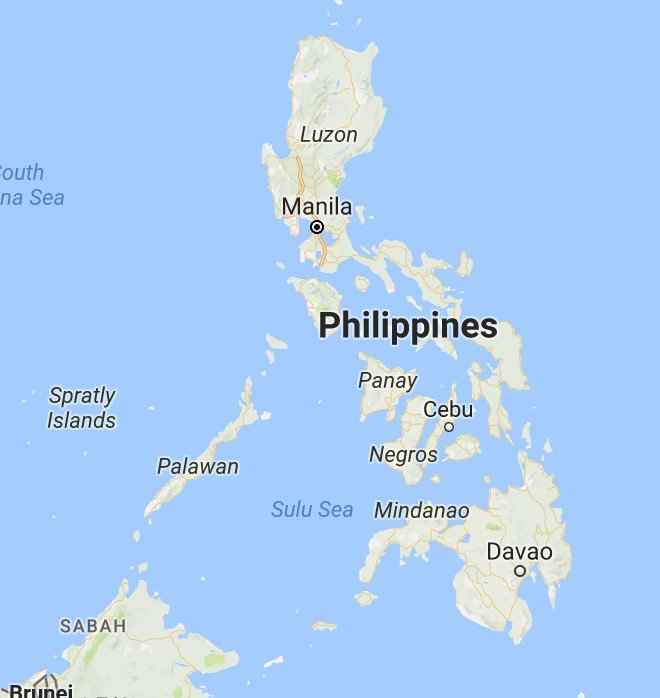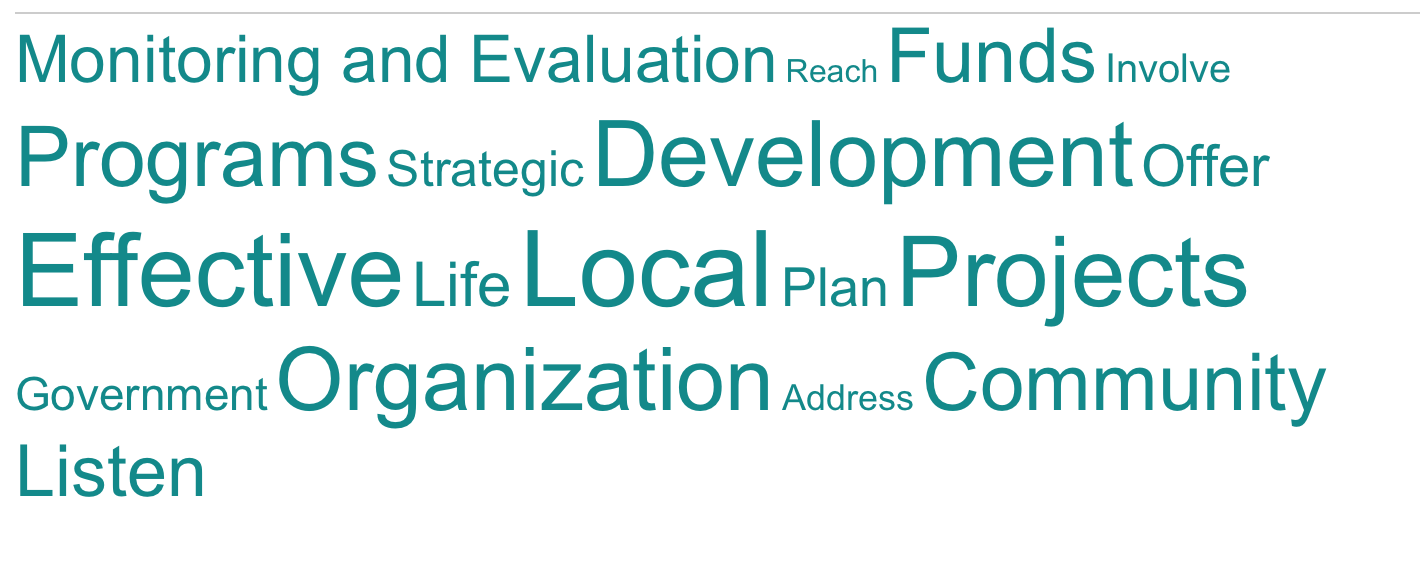“Put more effort and energy into localization and building the capacity of local NGOs/CSOs to lead humanitarian and development work.”
“Listen to the people always.”
Local Aid Worker Voices
This series reporting on a survey of Filipino aid and development workers is now extensive, with a dozen posts totaling well over 10,000 words. Though each post can stand alone, I invite you to scroll down and read the entire series started about six weeks ago. Our end point is getting near and a final ‘executive summary’ article will be drafted in the coming weeks.
read the entire series started about six weeks ago. Our end point is getting near and a final ‘executive summary’ article will be drafted in the coming weeks.
Before starting these last posts, I thought some ‘35,000 feet’ comments were in order.
Cultural context matters
The efforts of aid and development workers are best understood through a sociocultural lens that takes into consideration -in equal measure- important historical narratives, global influences, and current political, social, and environmental factors. Though not exclusively, in many locations the international aid sector can be and be seen as a colonial and/or neocolonial influence that both positively and negatively interacts with indigenous culture and civil society. The cultural impact, though bi-directional, tends always to be asymmetrical, with the host culture bearing the brunt of the change. Language is a good example of this impact, and the words and documents that official business is conducted in tends to be that of the colonizer. Not that it needs to be restated, but cultural context matters.
 In the case of the Philippines this means taking into account four hundred years of colonial influence, first from Spain and then the United States, and noting how these influences impacted, and were impacted by, sikolohiyang Pilipino (Filipino psychology) and culture.
In the case of the Philippines this means taking into account four hundred years of colonial influence, first from Spain and then the United States, and noting how these influences impacted, and were impacted by, sikolohiyang Pilipino (Filipino psychology) and culture.
Important in the Philippines -and certainly elsewhere in nations all along the development spectrum- is the important ‘third sector’ (the other two are business and government) or civil society . Along with one of the founders of sociology, Emile Durkheim, I find the elements of a culture that function as a ‘social glue’ to be vital, and this third sector is very grassroots based, with origins and manifestations in family, clan, neighborhood and village.
There are hundreds of thousands of community-based ‘third sector’ organizations in the Philippines, with more being started every year. Below is a relevant summary that provides historical context.
“The basis for civil society in the Philippines comes from the Filipino concepts of pakikipagkapwa (holistic interaction with others) and kapwa (shared inner self). Voluntary assistance or charity connotes for Filipinos an equal status between the provider of assistance and the recipient, which is embodied in the terms damayan (assistance of peers in periods of crisis) and pagtutulungan (mutual self-help). The Western notion of kawanggawa (charity) may have been introduced to the Philippines by Catholic missionaries.” [emphasis added]

The South African word ubuntu, here explained by Nelson Mandela, can be translated as “I am because you are” and perhaps can be seen as parallel to the Filipino words above, pakikipagkapwa and
pagtutulungan. Durkheim would suggest that concepts such as these serve to engender social cohesion and solidarity and these or similar concepts are likely cultural universals among pre-industrial cultures. I suggest that a full understanding of how aid and development are perceived and can move forward as ‘local-international’ partnerships must take into account this ubuntu-like cultural universal, underlining the likelihood that ‘charity’ is a fairly modern and mostly Western concept.
So with that, on to our data.
Improving the lives of Filipinos
At the end of our 28 item survey we asked three open ended questions. That deep into the survey only about 93 of the original 115 respondents were still active. On a very positive note, well over half of those chose to provide narrative feedback to our first open-ended question.
We asked, “As an aid or development worker, what are your thoughts about how the sector can be more effective in improving the lives of Filipinos?” The responses below take on deeper meaning since they come from Filipinos who -at least on some level- likely embrace the pakikipagkapwa perspective.
 Mental health
Mental health
Many themes emerged from these data. One speaks to a topic I mentioned in my last post, namely mental health issues. Leadership in INGO’s and local organizations alike are aware of their need to minister to the ‘whole’ person, and realize that, for example PTSD will be an issue long after homes are rebuilt. Research on this topic is fairly robust, and this article, for example, speaks to not only PTSD but to Secondary Traumatic Stress (STS) (“…debilitating condition characterized by a change of behaviors or emotions associated in the act of helping or wanting to help others who have experienced traumatic events.”) as well. Though the article focuses on nurses dealing with typhoon victims, I believe the main points are transferable to aid workers as well.
These two comments, the first from a female respondent, the second from a male, point to the need to keep mental health issues near the top of the priority list.
“The sector should farther extend the support not only financially, livelihood, but also on the psychological recovery. [emphasis added]”
“I think that psychological conditioning through seminars/symposium will help the people a lot with their mindsets about how to go with everyday life. If they have happy/positive disposition in life, it can impact their activities of daily living with positive outcomes. Not just providing material things or what not, the sector can focus on improving the people’s perspective of life along with the provision of their basic needs.”
Deeper engagement with local communities
Several respondents reaffirmed the need to work more -and more intentionally- at a very local level, many offering specific advice. The first cautionary ‘one size does not fit all’ comment is universally true, though the inertia behind proceeding forward in an ‘economy of scale’ manner is considerable because for big box organizations it often makes the most fiscal and bureaucratic sense. The remaining comments represent additional perspectives.
“Always be aware of the local context in every situation. What worked for one area may not work for another.”
“Programs/ projects should come from the ground that should be culturally and context sensitive. Aid should be motivated by needs, and not by warehouse approach– this has been happening lately because ofthe expats’ wrong programming and reading of the situation, that is, they most of the time insist on what they think is ‘right’.”
the time insist on what they think is ‘right’.”
“I hope there would be more genuine engagement with the communities, looking at people as not merely beneficiaries, but partners.”
“They should aim to reach the most deprived and marginalized, and address gaps.”
“They should listen more to their local counterparts and understand the context in the field more.”
“I think it will boil down simply to a bottom-up approach and not employing a one-size fits all solution to projects. Consultation is key.”
This last respondent offers some specific suggestions, addressing inherent bureaucratic challenges,
“Put more effort and energy into localization and building the capacity of local NGOs/CSOs to lead humanitarian and development work. For example, financial management issues (e.g., local NGOs do not have the capacity to meet the financial tracking requirements of donors) are often seen as a barrier to improving localization, so focus on finding viable solutions to reducing this barrier through a combination of less bureaucratic reporting/tracking requirements and capacitating NNGOs/NCSOs to better manage financial reporting/tracking requirements.”
There are presently well over a half million registered and unregistered CSO/NGO and CO’s in the Philippines. The bureaucratic challenges to moving the needle in a positive direction along the lines suggested in this comment are, well, daunting.
Leadership: tilting the power balance
This next comment speaks to the content in a previous post regarding to what extent are ‘localization’ efforts effective,
“There should be a synergy of efforts and close working relationship with the Philippine government and other development actors. The Philippines should also begin to take on most of the leadership roles in development as a middle income country.”
Surge response
This next set of comments speak to the blurred line between ‘aid’ and ‘development’ and nods to the growing movement to strengthen surge response capability. As climate change becomes more of a factor globally, but especially in typhoon prone nations like the Philippines, this kind of capacity building is key.
“I believe that strengthening the local aid workers capability to respond.. and strengthening the local community ability to prepare, response to disaster is more effective.”
“The sector can be more effective in improving the lives of the Filipinos by giving continuity of support after emergency phase.-> Developmental Phase”
Three legged stool
Finally, this comment, I am sure, will resonate with aid workers around the world, and perhaps hits on a key point when trying to balance on that ‘three legged stool’ oft referred to by my colleague J (Evil Genius), namely the aid sector, the ‘beneficiary”, and the donor. Simple, powerful words, these,
key point when trying to balance on that ‘three legged stool’ oft referred to by my colleague J (Evil Genius), namely the aid sector, the ‘beneficiary”, and the donor. Simple, powerful words, these,
“Programs should be made people-driven, not donor-driver. Programs should be based on what the people need, not what the donor wants.”
As always, contact me with questions, comments, or suggestions.


 Follow
Follow